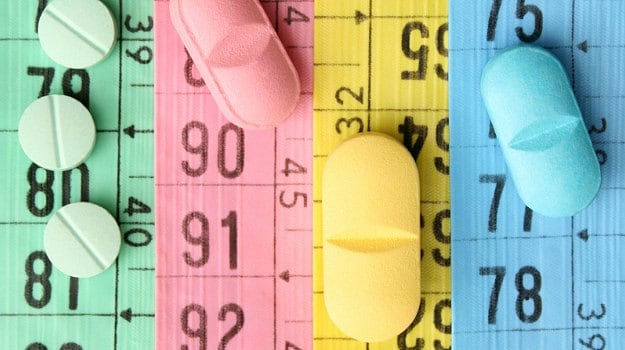Multi-vitamins, diet pills and energy boosters may not be the harmless substances you think they are. In the first study of its kind, published Wednesday in the New England Journal of Medicine, researchers estimated that 23,000 people end up in the emergency room each year suffering from heart palpitations, chest pain, choking or other problems after ingesting dietary supplements. Most of those patients were young adults, children or the elderly.While that number is a small fraction - just 5 percent - of the number of ER visits involving pharmaceuticals, the issue is a cause for concern because the market for herbal and complementary nutritional products remains largely unregulated. Surveys have shown that about half of U.S. adults used at least one dietary supplement in the past month and that there were more than 55,000 products on the market as of 2012. Out-of-pocket expenditures on these products is estimated to be about a third of what people spend on prescription drugs.In recent years, U.S. health officials have ramped up efforts to warn consumers about the potential dangers of these substances after several highly publicized cases of deaths of otherwise healthy individuals who took supplements. Last year, two people - Logan Stiner, an 18-year-old high school senior in Ohio, and 24-year-old James Wade Sweatt of Georgia, who was newly married and a recent college graduate - died of overdoses from powdered caffeine. The study, which was conducted by a team from the Centers for Disease Control and Prevention and the Food and Drug Administration, tracked ER admissions at 63 hospitals throughout the United States from 2004 to 2013. Of the 23,000 ER visits, 2,000 resulted in hospitalizations.
Andrew Geller, the study's lead author and a medical officer at the CDC, said in an interview that it was impossible to pinpoint exactly what the patients took other than the broad categories from the data collected as physicians sometimes didn't write down brand names and even if they did companies tend to change ingredients frequently.More than a quarter of the ER visits documented in the study involved young adults between the age of 20 and 34 years. "With the younger adults one of our central findings was weight loss or energy products were the most commonly implicated dietary supplements and the fact is found many with cardiac symptoms - which are effects we might see with caffeine," Geller said.A second group frequently seen in emergency rooms was children who got into supplements like multivitamins they weren't supposed to touch. Older adults were less commonly involved, but when they were it usually had to do with choking. Geller said that patients taking supplements or considering taking them should keep these precautions in mind:Young adults taking products to lose weight or increase energy should keep in mind that some of these products can have effects on their heart, and they should not take these products in excess. If you have a heart condition, talk to your doctor before starting a weight loss or energy supplement. Older adults should be mindful of possible choking or other swallowing problems from taking supplements. They should avoid taking several pills at once, avoid extra large pills or capsules, and swallow supplements with plenty of water or other fluid. Tell your physician you are having difficulty swallowing pills and ask him/her or your pharmacist for other options or if you can cut the supplement in half. Patients should always tell their doctors if they are taking dietary supplements, and which ones. All medicines and dietary supplements should be stored up, away, and out of sight of young children.© 2015 The Washington Post
Andrew Geller, the study's lead author and a medical officer at the CDC, said in an interview that it was impossible to pinpoint exactly what the patients took other than the broad categories from the data collected as physicians sometimes didn't write down brand names and even if they did companies tend to change ingredients frequently.More than a quarter of the ER visits documented in the study involved young adults between the age of 20 and 34 years. "With the younger adults one of our central findings was weight loss or energy products were the most commonly implicated dietary supplements and the fact is found many with cardiac symptoms - which are effects we might see with caffeine," Geller said.A second group frequently seen in emergency rooms was children who got into supplements like multivitamins they weren't supposed to touch. Older adults were less commonly involved, but when they were it usually had to do with choking. Geller said that patients taking supplements or considering taking them should keep these precautions in mind:Young adults taking products to lose weight or increase energy should keep in mind that some of these products can have effects on their heart, and they should not take these products in excess. If you have a heart condition, talk to your doctor before starting a weight loss or energy supplement. Older adults should be mindful of possible choking or other swallowing problems from taking supplements. They should avoid taking several pills at once, avoid extra large pills or capsules, and swallow supplements with plenty of water or other fluid. Tell your physician you are having difficulty swallowing pills and ask him/her or your pharmacist for other options or if you can cut the supplement in half. Patients should always tell their doctors if they are taking dietary supplements, and which ones. All medicines and dietary supplements should be stored up, away, and out of sight of young children.© 2015 The Washington Post
Advertisement









